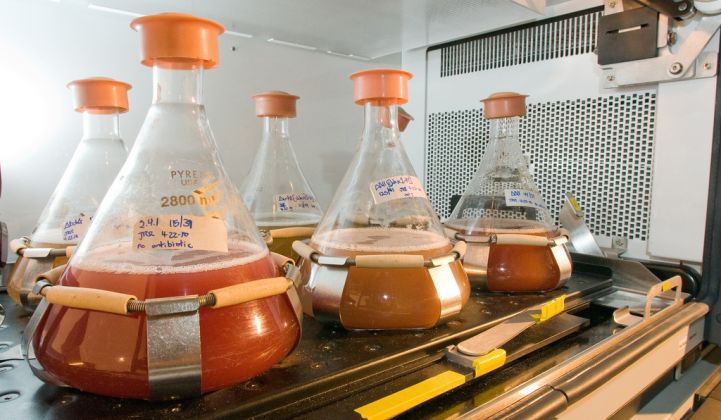Elevance Renewable Sciences, developer of specialty chemicals from renewable oils, has raised $104 million in a Series E round, the company reported Wednesday. The Woodridge, Ill.-based company had planned to raise up to $100 million in an initial public offering, according to a September 2011 S-1 filing. But with the public markets soured on biofuel and biochemicals, it appears that going back to investors was judged the better path.
The Series E round included existing investor Total Energy Ventures, the VC arm of French oil giant Total, and was led by Lacustrine Limited on behalf of Genting Genomics Limited, a subsidiary of Malaysian casino and resort giant Genting Berhad. “The investment will support Elevance’s strategic growth plans, including the continued development of biorefineries in Asia and North and South America,” CEO K’Lynne Johnson said in Wednesday’s statement, though no further details were provided. Genting Berhad would play an important role in the company’s plans for Malaysia and greater Asia, Johnson added.
Elevance was formed in 2007 as a spinout of agribusiness giant Cargill and catalyst developer Materia, and was initially funded with $45 million from those companies and venture investor TPG. It raised $100 million in 2010, adding Naxos Capital Partners and Total Energy Ventures to its list of investors at that time, and another $50 million in July 2011, for a total of $198.8 million as of June 30, 2011.
The goal of all this fundraising -- as well as the would-be IPO -- was to build out commercial-scale biochemical plants at a cost cheaper than traditional plants, using plant oils instead of raw feedstock. The S-1 sets Elevance’s construction cost targets between $0.07 and $0.016 per pound of annual capacity, compared to $0.42 to $1.04 per pound for conventional plants.
Elevance has landed partners including Dow Corning, Stepan, and Wilmar International interested in using its biochemicals for such products as beauty creams, detergents and adhesives. Cargill is supplying Elevance with oils like palm, soybean and rapeseed, while Materia supplies the IP in the form of its ruthenium catalyst.
The company landed a $2.5 million Department of Energy grant in 2009 for its demonstration plant, and has identified Natchez, Miss. and Indonesia as targets for two commercial-scale facilities. As of June 30, 2011, it had $73.2 million in cash and equivalents (an unaudited figure), along with $22.9 million in short-term investments. It reported 2010 revenues of $21.2 million and a net loss of $27.3 million, and was carrying a shareholders’ deficit of $188.8 million as of mid-2011.
Elevance didn’t comment on its IPO plans, but there’s little doubt that its decision to go back to investors for its growth needs was driven by the struggles of biofuel companies like Amyris, Codexis, Gevo and others that have gone public in the past few years. Amyris has seen its share price tank and top executives replaced, while Khosla Ventures-backed Gevo has been caught up in a legal challenge over its right to supply automotive fuel blended from bio-isobutanol made at its Luverne, Minn. plant.
Renewable Energy Group, the country’s biggest biodiesel producer, saw its January IPO underperform expectations, raising only $72 million as compared to its target of $124 million. Since then, bioenergy companies Enerkem and Luca Technologies both dropped their IPO plans. Elevance is still in registration for its IPO.



